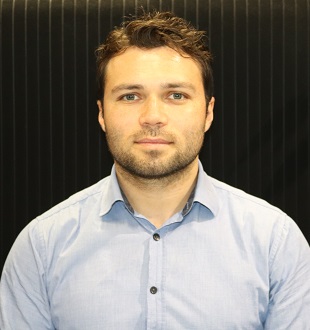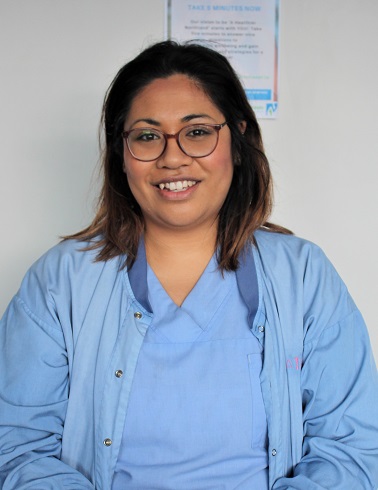Success for Northland Doctors
Two Northland DHB doctors will begin their journey towards becoming orthopaedic surgeons next year after being selected among just 13 others nationwide to participate in the New Zealand Orthopaedic Training Programme.
To become an orthopaedic surgeon, applicants must have a medical degree and at least two years post-graduate experience. The training takes a minimum of five years, where the trainee is employed as a registrar and rotated through a range of accredited New Zealand hospitals, including Whangārei Hospital. The curriculum is a mixture of practical operating competencies, communication skills and formal theoretical examinations.
Progress is reviewed annually by the New Zealand Orthopaedic Association (NZOA) Education Committee. On successful completion, the applicant can apply for Fellowship with the Royal Australasian College of Surgeons (RACS) and become vocationally registered as an orthopaedic surgeon with the New Zealand Medical Council. The training is completed jointly through the College (RACS) and the NZOA Education Committee.
Zanazir Alexander is one of the successful candidates for this year's application. Zanazir is of Māori descent and grew up in the Far North in the small farming community of Okaihau. He attended the local school for all his schooling years before moving to Auckland to attend medical school at the University of Auckland. Zanazir was inspired by another former Okaihau College student who had been accepted into medical school a few years earlier. 
Before graduating from medical school, Zanazir developed an interest in Orthopaedic Surgery and, by the time he graduated in 2015, had set his sights on pursuing orthopaedics as a career. He worked for five years in Auckland before moving to Whangārei earlier this year to work as part of the Orthopaedic Surgery Department at Northland DHB.
In June this year, following the orthopaedic surgery speciality interviews in Wellington, Zanazir found out he was selected for the Programme.
"Being selected for the training program is a dream come true – sometimes I still pinch myself to check if it's real. I am thankful to those who have supported me to make it to this point."
"It has been a great opportunity to work in Whangārei, and the Orthopaedic Department here are extremely supportive."
Zanazir said Whangārei is a popular hospital choice for trainees because the Orthopaedic Department is so amazing, "The exposure and teaching are second to none and it offers a quality of life not possible in many of the larger centres.
"I have always wanted to come home to work amongst my people and community, so it is nice to be able to do that finally."
Ultimately, Northland is where he would like to work following the completion of his surgical training.
"Northland ticks so many boxes for me – it's a nice place to work, it's where I am from, my family are here, it's home."
Zanazir's former medical school classmate Atua Fuimaono Asafo is the other successful candidate. She also is only just coming to terms with being accepted onto the Programme. 
"It's still quite overwhelming. If you had asked me where I would see myself ten years ago, I definitely wouldn't have thought I'd end up in this spot. I'm grateful for the opportunities I've had over the years and fortunate to have had great seniors and mentors who have helped me, got me involved and stimulated my interest."
Atua is Samoan and was born and raised in Australia. When she was 12, she and her family moved to Auckland. She said throughout her life, she has had many positive influences, including her grandfather and two uncles, who were doctors. Her high school teachers guided her towards medicine, which she said she wouldn't have considered on her own.
Orthopaedic Surgery appealed to Atua because of the amount of variety in the role, "I liked that you do ward rounds, but you also see patients in the ED setting, trauma setting and clinic. Then there are the different parts to operating – acute and elective.
"I also enjoy working with my hands and fixing things. Using the power tools is quite cool and implants. It's all fun."
Atua is also grateful to the Orthopaedic Department at Northland DHB for investing in her and giving her lots of opportunities to learn, including many basic concepts. So she is confident that she will be ready to hit the ground running when she moves to Rotorua in January for her first year.
She noted that others doctors in the Programme could be operating at different levels depending on their exposure during their non-training years. However, other skills cultivated during the earlier years are also essential to becoming a good surgeon.
"These are things your consultants see in you and why they encourage you to apply for training. At the end of the day, like many specialities, surgeons don't do things in isolation. We work with many different people – nurses, physiotherapist's and other doctors more senior or junior to you. So being a team player who is approachable and able to communicate effectively is essential. All of the surgeons I've been lucky enough to work with have all shown great leadership."
"So much about Surgery happens outside the operating theatre. And we all have a responsibility to be aware of these things. The most important qualities of being a good doctor are how you work with other people and understand your community's needs - the things I value most."
Last modified:
